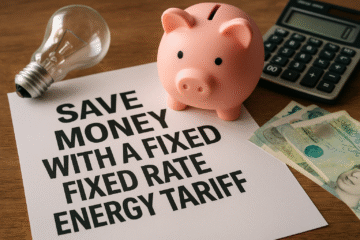The energy market in the UK is a complex and dynamic system that is constantly evolving. It is made up of a variety of different players, including energy suppliers, generators, distributors, and regulators. The market is also influenced by a range of external factors, such as government policy, technological advancements, and global energy trends. Understanding how the energy market works is essential for consumers who want to make informed decisions about their energy usage and provider.
One of the key features of the UK energy market is its liberalisation, which has led to increased competition and choice for consumers. This means that there are now a wide range of energy providers to choose from, each offering different tariffs, services, and incentives. However, this also means that navigating the energy market can be confusing and overwhelming for many consumers. It is important to take the time to research and compare different providers in order to find the best deal for your individual needs.
Comparing Different Energy Providers
When it comes to comparing different energy providers in the UK, there are a number of factors to consider. These include the type of energy they supply (e.g. gas, electricity, or both), their pricing structure, customer service reputation, and any additional benefits or incentives they offer. It is also important to consider the environmental impact of the energy provider, such as their commitment to renewable energy and carbon reduction.
There are a number of resources available to help consumers compare different energy providers, such as price comparison websites and consumer advocacy groups. These can provide valuable information about the different options available and help consumers make an informed decision. It is also worth considering speaking to friends and family about their experiences with different energy providers, as personal recommendations can be very valuable.
Factors to Consider When Choosing an Energy Provider
When choosing an energy provider in the UK, there are a number of important factors to consider. One of the most important considerations is the pricing structure of the provider, including their unit rates, standing charges, and any additional fees or penalties. It is also important to consider the length and terms of the contract, as well as any exit fees that may apply if you decide to switch providers in the future.
Another important factor to consider is the customer service reputation of the energy provider. This can have a significant impact on your experience as a consumer, as good customer service can make it easier to resolve any issues or queries that may arise. It is also worth considering the environmental impact of the energy provider, such as their commitment to renewable energy and carbon reduction. Finally, it is important to consider any additional benefits or incentives that the provider may offer, such as loyalty rewards or energy-saving tips.
Renewable Energy Options for Your Home
In recent years, there has been a growing interest in renewable energy options for homes in the UK. This is driven by a number of factors, including concerns about climate change, rising energy costs, and advances in renewable energy technology. There are now a range of renewable energy options available for homeowners, including solar panels, wind turbines, and heat pumps.
One of the most popular renewable energy options for homes in the UK is solar panels. These can be installed on the roof of a property and used to generate electricity from sunlight. This can help homeowners reduce their reliance on traditional energy sources and lower their carbon footprint. Another popular option is wind turbines, which can be installed in gardens or on rooftops to generate electricity from wind power. Heat pumps are also becoming increasingly popular, as they can be used to extract heat from the ground or air and use it to heat water or provide space heating.
Understanding Your Energy Usage and Needs
Understanding your energy usage and needs is essential for making informed decisions about your energy provider and usage. This involves taking the time to assess how much energy you currently use, what you use it for, and when you use it. This can help you identify areas where you may be able to reduce your energy usage and save money on your bills.
There are a number of tools and resources available to help consumers understand their energy usage and needs, such as smart meters and online energy usage calculators. These can provide valuable insights into how much energy you are using and where it is being used. It is also worth considering speaking to an energy advisor or consultant, who can provide personalised advice and recommendations based on your individual circumstances.
Tips for Saving Money on Your Energy Bills
There are a number of simple yet effective tips for saving money on your energy bills in the UK. One of the most important things you can do is to improve the energy efficiency of your home, as this can help reduce your overall energy usage and costs. This can be achieved through a range of measures, such as installing insulation, upgrading to energy-efficient appliances, and using smart heating controls.
Another effective way to save money on your energy bills is to switch to a more competitive energy tariff or provider. This can help you take advantage of lower unit rates and better incentives, which can lead to significant savings over time. It is also worth considering making small changes to your daily habits and routines, such as turning off lights and appliances when not in use, using energy-saving settings on electronic devices, and reducing your reliance on heating and cooling systems.
Switching Providers: How to Make the Process Smooth and Easy
Switching energy providers in the UK can seem like a daunting task, but it doesn't have to be difficult or time-consuming. There are a number of steps you can take to make the process smooth and easy. The first step is to research and compare different providers to find the best deal for your individual needs. This can involve using price comparison websites, reading customer reviews, and speaking to friends and family about their experiences.
Once you have found a new provider that you are happy with, the next step is to contact them and arrange the switch. This can usually be done online or over the phone, and the new provider will take care of most of the process for you. It is important to check whether there are any exit fees or penalties associated with your current contract before making the switch, as these could affect your decision.
Overall, understanding the energy market in the UK and comparing different providers can help consumers make informed decisions about their energy usage and provider. Factors such as pricing structure, customer service reputation, environmental impact, and additional benefits should all be considered when choosing an energy provider. Renewable energy options for homes are becoming increasingly popular in the UK, with solar panels, wind turbines, and heat pumps being some of the most popular choices. Understanding your energy usage and needs is essential for making informed decisions about your energy provider and usage, while there are also a number of tips for saving money on your energy bills. Finally, switching providers doesn't have to be difficult or time-consuming if you take the time to research and compare different options before making the switch.





